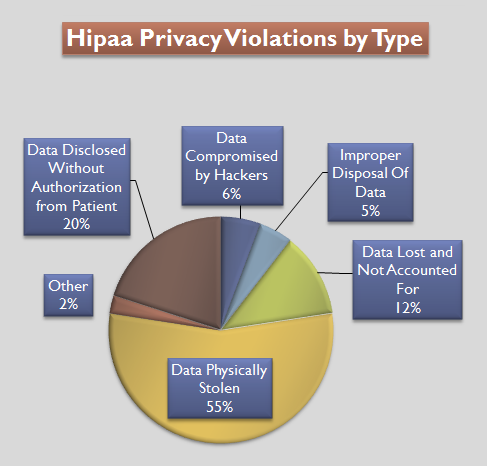|
Guaranteed Issue
Guaranteed issue is a term used in health insurance to describe a situation where a policy is offered to any eligible applicant without regard to health status. Often this is the result of guaranteed issue statutes regarding how health insurance may be sold, or to provide a means for people with pre-existing conditions the ability to obtain health insurance of some kind. Under the Patient Protection and Affordable Care Act (ACA), all health insurance policies must be sold on a guaranteed issue basis. Prior to the ACA, a small number of states required insurers to sell all coverage on this basis in the individual health insurance market. In addition, the "creditable coverage" provisions of the Health Insurance Portability and Accountability Act of 1996 are often considered to be a federal guaranteed issue regulation which some states fulfilled using a high-risk pool program. References See also *Community rating Community rating is a concept usually associated with health ins ... [...More Info...] [...Related Items...] OR: [Wikipedia] [Google] [Baidu] |
Health Insurance
Health insurance or medical insurance (also known as medical aid in South Africa) is a type of insurance that covers the whole or a part of the risk of a person incurring medical expenses. As with other types of insurance, risk is shared among many individuals. By estimating the overall risk of health risk and health system expenses over the risk pool, an insurer can develop a routine finance structure, such as a monthly premium or payroll tax, to provide the money to pay for the health care benefits specified in the insurance agreement. The benefit is administered by a central organization, such as a government agency, private business, or not-for-profit entity. According to the Health Insurance Association of America, health insurance is defined as "coverage that provides for the payments of benefits as a result of sickness or injury. It includes insurance for losses from accident, medical expense, disability, or accidental death and dismemberment". Background A healt ... [...More Info...] [...Related Items...] OR: [Wikipedia] [Google] [Baidu] |
Pre-existing Condition
In the context of healthcare in the United States, a pre-existing condition is a medical condition that started before a person's health insurance went into effect. Before 2014, some insurance policies would not cover expenses due to pre-existing conditions. These exclusions by the insurance industry were meant to cope with adverse selection by potential customers. Such exclusions have been prohibited since January 1, 2014, by the Patient Protection and Affordable Care Act. According to the Kaiser Family Foundation, more than a quarter of adults below the age of 65 (approximately 52 million people) had pre-existing conditions in 2016. Definitions The University of Pittsburgh Medical Center defines a pre-existing condition as a "medical condition that occurred before a program of health benefits went into effect". J. James Rohack, president of the American Medical Association, has stated on a '' Fox News Sunday'' interview that exclusions, based upon these conditions, funct ... [...More Info...] [...Related Items...] OR: [Wikipedia] [Google] [Baidu] |
Patient Protection And Affordable Care Act
The Affordable Care Act (ACA), formally known as the Patient Protection and Affordable Care Act and colloquially known as Obamacare, is a landmark U.S. federal statute enacted by the 111th United States Congress and signed into law by President Barack Obama on March 23, 2010. Together with the Health Care and Education Reconciliation Act of 2010 amendment, it represents the U.S. healthcare system's most significant regulatory overhaul and expansion of coverage since the enactment of Medicare and Medicaid in 1965. The ACA's major provisions came into force in 2014. By 2016, the uninsured share of the population had roughly halved, with estimates ranging from 20 to 24 million additional people covered. The law also enacted a host of delivery system reforms intended to constrain healthcare costs and improve quality. After it went into effect, increases in overall healthcare spending slowed, including premiums for employer-based insurance plans. The increased coverage was ... [...More Info...] [...Related Items...] OR: [Wikipedia] [Google] [Baidu] |
Health Insurance In The United States
Health insurance in the United States is any program that helps pay for medical expenses, whether through privately purchased insurance, social insurance, or a social welfare program funded by the government. Synonyms for this usage include "health coverage", "health care coverage", and "health benefits". In a more technical sense, the term "health insurance" is used to describe any form of insurance providing protection against the costs of medical services. This usage includes both private insurance programs and social insurance programs such as Medicare, which pools resources and spreads the financial risk associated with major medical expenses across the entire population to protect everyone, as well as social welfare programs like Medicaid and the Children's Health Insurance Program, which both provide assistance to people who cannot afford health coverage. In addition to medical expense insurance, "health insurance" may also refer to insurance covering disability or ... [...More Info...] [...Related Items...] OR: [Wikipedia] [Google] [Baidu] |
Health Insurance Portability And Accountability Act Of 1996
The Health Insurance Portability and Accountability Act of 1996 (HIPAA or the Kennedy– Kassebaum Act) is a United States Act of Congress enacted by the 104th United States Congress and signed into law by President Bill Clinton on August 21, 1996. It modernized the flow of healthcare information, stipulates how personally identifiable information maintained by the healthcare and healthcare insurance industries should be protected from fraud and theft, and addressed some limitations on healthcare insurance coverage. It generally prohibits healthcare providers and healthcare businesses, called ''covered entities'', from disclosing protected information to anyone other than a patient and the patient's authorized representatives without their consent. With limited exceptions, it does not restrict patients from receiving information about themselves. It does not prohibit patients from voluntarily sharing their health information however they choose, nor does it require confidential ... [...More Info...] [...Related Items...] OR: [Wikipedia] [Google] [Baidu] |
High-risk Pool
An equalization pool is a fund created to level out differences in financial risk, often across long periods of time, in a process known as risk equalization. Examples include mandatory health insurance and grower co-operatives. Health insurance In health insurance, equalization pools are used in countries such as Ireland, Australia, Germany and the Netherlands, to balance risks in groups of people of varying levels of health to ensure medical risks are covered for people who might otherwise be difficult to insure. The policies are also called high-risk pools and are made for covering the sickest uninsured people. For insurance companies, giving service to those citizens is deeply risky, so the government gives them some money to reduce the cost. In normal insurance markets, insurers price high-risk individuals at a higher premium to discourage them from buying insurance and offer lower-risk individuals lower premiums. That can make insurance phenomenally expensive for the elderly ... [...More Info...] [...Related Items...] OR: [Wikipedia] [Google] [Baidu] |
Community Rating
Community rating is a concept usually associated with health insurance, which requires health insurance providers to offer health insurance policies within a given territory at the same price to all persons without medical underwriting, regardless of their health status. ''Pure'' community rating prohibits insurance rate variations based on demographic characteristics such as age or gender, whereas ''adjusted'' or ''modified'' community rating allows insurance rate variations based on demographic characteristics such as age or gender. Concept Community rating, as a basis for premium calculation, is fundamentally different from the usual method of determining insurance premiums, i.e. ''risk'' rating. In a risk rated insurance market, an insurer calculates the premium payable by a potential policy holder in order to enter into an insurance contract on the basis of various factors particular to that individual, such as the risk of a claim occurring, and the value of any such claim ... [...More Info...] [...Related Items...] OR: [Wikipedia] [Google] [Baidu] |


